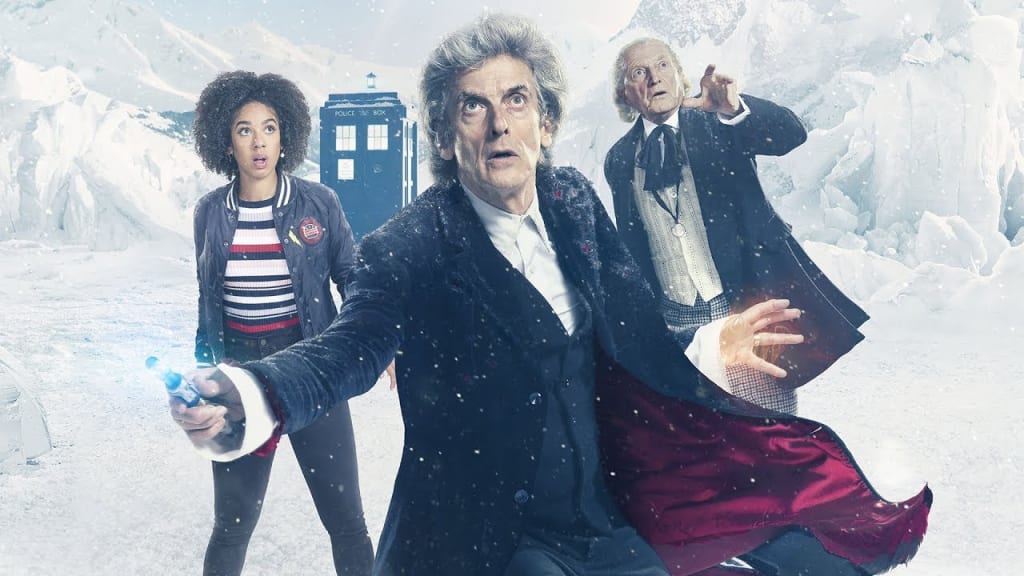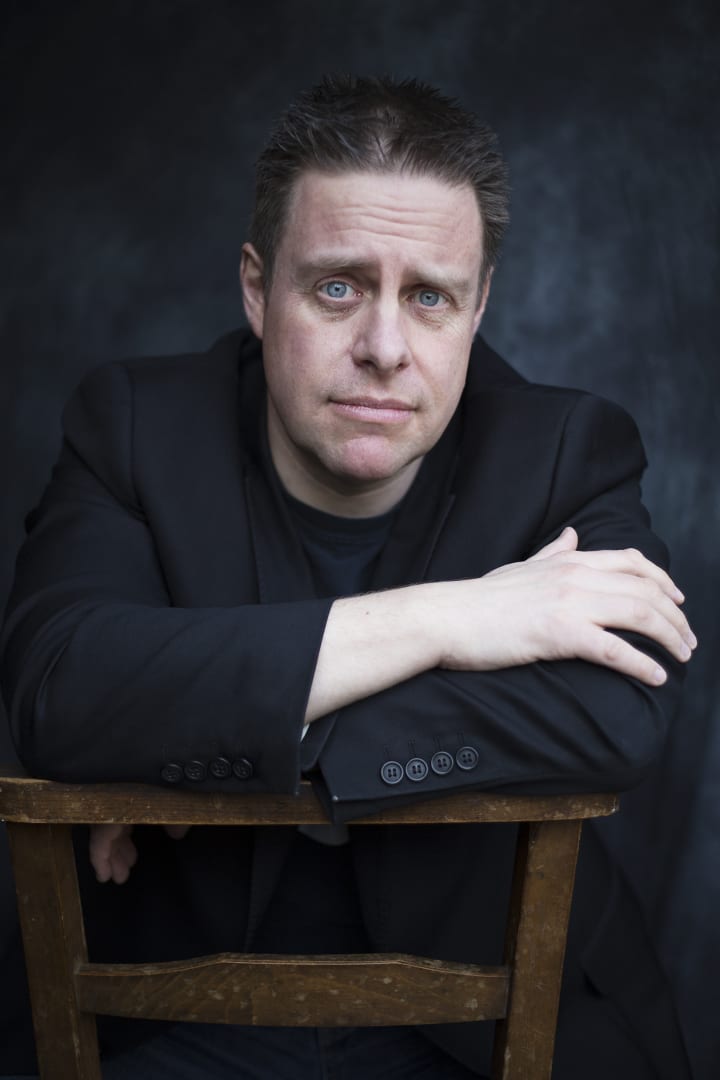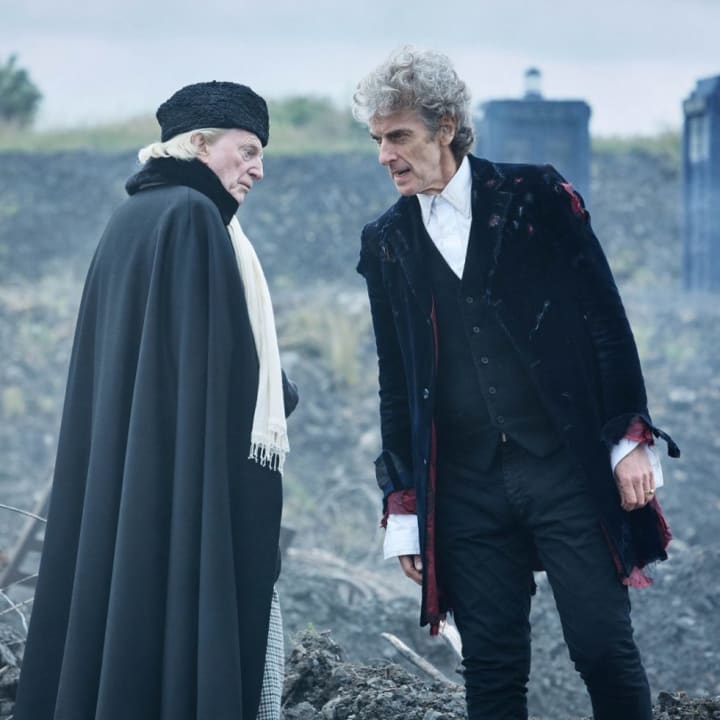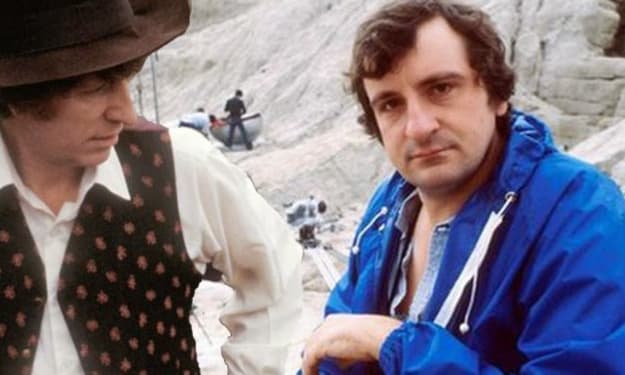'Doctor Who': 'Twice Upon a Time' Novelization Review
Paul Cornell novelizes the 2017 Christmas special.

Back in the 1970s and into the 1980s, the only way fans of Doctor Who often could encounter an older story was by reading it. The Target novelizations, slim books often running little more than 150 pages, was the cornerstone of the show's merchandise. These days, of course, that isn't the case with a multitude of watching options to choose from including DVDs and streaming platforms. That hasn't stopped such demand for new Target style novelizations of twenty-first-century episodes which BBC Books debuted a set of earlier this year. Among them was the most recently aired episode, the 2017 Christmas Special "Twice Upon A Time," written by a stalwart making one last comeback: Paul Cornell.

Paul Cornell, author of the novelization.
Cornell (whose Doctor Who credits include episodes such as "Father's Day" and "Human Nature/Family Of Blood" alongside original creations such as Saucer Country) was a natural choice to novelize this final outing of the Twelfth Doctor. "Twice Upon A Time" is, after all, perhaps more of a character piece disguised as a sci-fi runaround. Cornell, in both his Who prose and TV scripts, had shown himself a particular practitioner of more character-centric storytelling and he excels at bringing that sensibility to the novelizing the Christmas special.
Where Cornell and the novelization shines is in its characters. Elements of that are down, of course, to the original Steven Moffat script for it but it's what Cornell does with it that counts here. The novelization builds on what was onscreen last December, finding moments during and around dialogue. Some of which are quite cheeky fan references such as what was on the VHS tape that Mark Gatiss's First World War Captain holds up in the TARDIS and some laugh out loud moments regarding the backstory of a few of the UK celebrities that the Peter Capaldi Doctor calls his earlier self. On the topic of the First Doctor, Cornell also finds some explanation for the characterization some found over the top for that Doctor including teasing his future self and being exasperated by events. There's even room for the fates of the Twelfth Doctor's companions. All of which helps make this fun reading for a fan, especially someone who enjoyed the special.

The Two Doctors in a moment from the TV special.
Something else which makes the novelization intriguing is the material deleted from the TV version it reinstates. There are no great big dramatic twists or eliminated scenes as such, and yet, the book is full of extended sequences. There's how the Captain ended up in his predicament for example as well as an expanded sequence on Villengard with the two Doctors dealing with a swarm of creatures. Indeed, what Cornell most restores are character moments and pieces of dialogue between the two versions of the same Time Lord which further highlight the scenes of these two old men seeming to rage against the dying of the light and wondering if they should continue. These are perhaps the biggest highlights of the book though none of them make earth-shattering changes to the special as aired.
What Cornell highlights most of all is one theme from Moffat's script: hope. It runs throughout from the Captain's escape from death and Bill trying to make her Doctor believe she's returned. It's also in the interactions between the two Doctors, sometimes touching moments of trying to convince one another to carry on despite the battles they've fought. That despite everything, there's always the chance to do something better and that the inevitable change the future brings isn't to be feared but embraced. It's an important message from Cornell as he walks away from writing for the series that has left such a mark on his life and career.
It is that perhaps which helps make the novelization of Twice Upon A Time such a delightful read. Watching the special is one thing but reading Cornell's expansion of it, from its extended sequences to new flashes of characterization, allows one a different experience of the same story. It is also a chance to see a Who writer bid farewell to the program not with sadness but with hope and excitement for what lies ahead. One that also includes, perhaps, a memory of days spent reading the original Target books?
About the Creator
Matthew Kresal
Matthew Kresal was born and raised in North Alabama though he never developed a Southern accent. His essays have been featured in numerous books and his first novel Our Man on the Hill was published by Sea Lion Press in 2021.






Comments
There are no comments for this story
Be the first to respond and start the conversation.